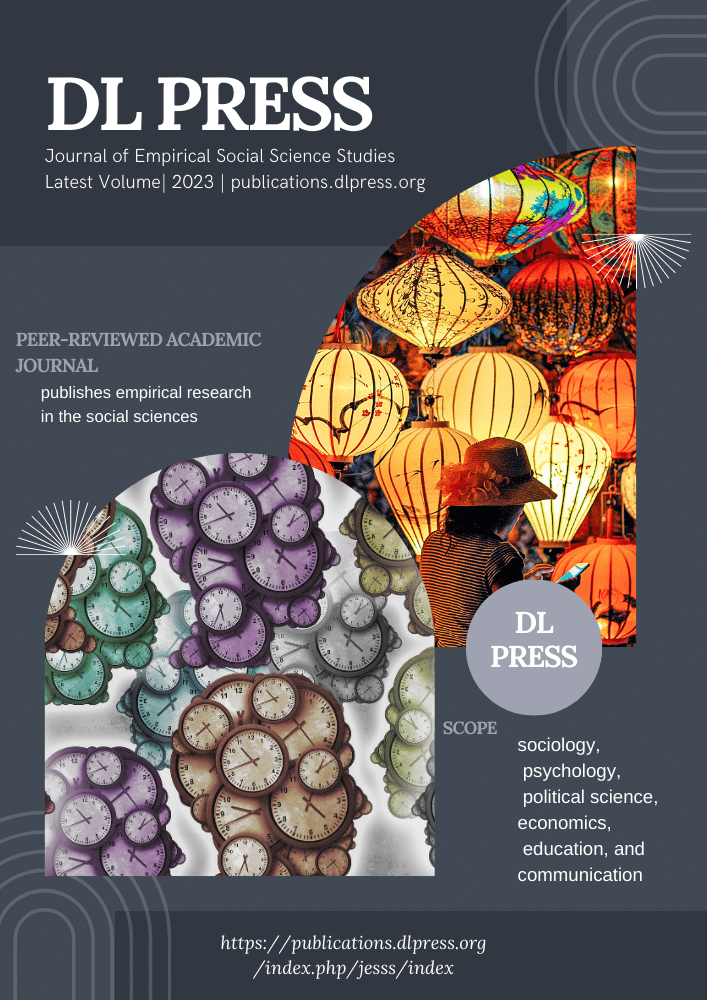Psychological Effects of Cybercrime on Minorities: Short-Term and Long-Term Impacts
Main Article Content
Abstract
Objective: The objective of this study was to examine the psychological effects of cybercrime on individuals who belong to minority groups.
Method: This study utilized a literature review approach to analyze previous research on the topic. A range of databases were searched, including PubMed and PsycINFO.
Results: The findings of this study indicated that cybercrime can have both short-term and long-term psychological effects on individuals who belong to minority groups. The short-term effects include fear and anxiety, loss of trust, and post-traumatic stress disorder (PTSD). Long-term effects include chronic stress, depression and anxiety, social isolation, and financial impacts.
Conclusion: This study highlights the importance of addressing the psychological effects of cybercrime on minorities through supportive services such as counseling, therapy, and community support. Additionally, measures should be taken to prevent cybercrime and provide justice to victims. It is crucial to recognize the impact of cybercrime on minority individuals and provide adequate support to mitigate the psychological effects.
Article Details
Public Licensing Terms
Thank you for your interest in our published work. We are committed to promoting open access and the free dissemination of knowledge. In line with this, we have established the following public licensing terms that govern the use and distribution of our published works:
-
Creative Commons License: All our published works are licensed under the Creative Commons Attribution-NonCommercial-ShareAlike (CC BY-NC-SA) license, unless otherwise specified.
-
Permissions Granted: a) Attribution: You are free to share and adapt the work, provided that you give appropriate credit to the author(s) and provide a link to the original source. b) NonCommercial: You may not use the work for commercial purposes without obtaining explicit permission from the copyright holder. c) ShareAlike: If you remix, transform, or build upon the work, you must distribute your contributions under the same CC BY-NC-SA license as the original work.
-
Compliance with License Terms: When using or distributing our published works, you must comply with the terms of the CC BY-NC-SA license and ensure that proper attribution is given to the original author(s).
-
Commercial Use: If you wish to use our published works for commercial purposes, you must seek permission from the copyright holder. Please contact us at [insert contact information] to discuss commercial licensing options.
-
Third-Party Rights: Our published works may contain third-party content or materials. The licensing terms for such content may vary, and you are responsible for complying with any additional terms or restrictions imposed by the respective copyright holders.
-
Disclaimer: The published works provided under these licensing terms are intended for informational and educational purposes only. We do not guarantee the accuracy, completeness, or suitability of the content, and we shall not be held liable for any errors, omissions, or damages arising from the use of the published works.
-
Termination: We reserve the right to terminate or modify the licensing terms for our published works at any time without prior notice. However, any works published prior to the modification or termination will continue to be governed by the original licensing terms.
By accessing, using, or distributing our published works, you acknowledge and agree to be bound by these public licensing terms. If you have any questions or require further clarification regarding the licensing terms or permissions, please contact us at permission@publications.dlpress.org
Last updated: 05-02-2023
